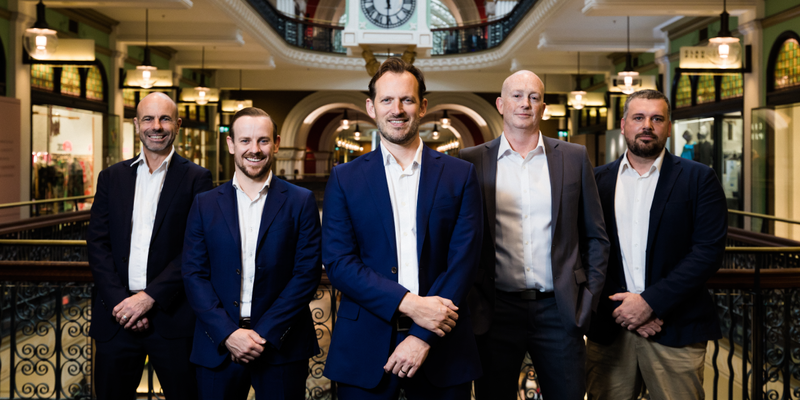
December 12, 2024
Engineers are Australia’s backbone, vital for our ability to adapt, grow and build as a nation to meet the challenges of the coming years. Except … there isn’t enough great talent to go around.
So what’s causing Australia’s engineering talent crisis, and how do you navigate the shortage to recruit great candidates? Let’s discuss.
Australia’s engineering talent challenges
Despite a nationwide workforce of over half a million, Australia’s engineering shortage is at its highest in a decade (Engineers Australia). While the industry grew significantly from 2016-2021, and migrant talent is helping to fill gaps, it’s still not enough.
What’s causing the shortages?
Simply put, demand is outstripping supply. Australia is growing rapidly, putting pressure on infrastructure and utilities to keep up. But, we can’t produce engineers that quickly. To put it in numbers, demand is outgrowing supply at a rate of 3x, leaving critical sectors like defence, power, construction and software engineering facing significant recruitment challenges.
Nationwide policy change at the government level is necessary for solving the deficit as a whole, but individual organisations aren’t stuck waiting for change.
In fact, when you look at individual causes of the engineering talent deficit, you’ll see quite a few areas where you can adapt to better attract and retain qualified engineers – despite the shortages.
Key issues identified as causing engineering talent shortages include:
- Skills change: As technology evolves, so too do the skills required of Australia’s engineers. When talent can’t keep up with the skills changes, it leads to shortages in these areas.
- Lack of graduates: Australia doesn’t have enough graduates commencing (and completing) engineering qualifications relative to its population, limiting the supply of new engineers replacing retirees.
- Lack of diversity: A low proportion of women in engineering hinders available talent – only 17.7% of graduates are women, and a lack of awareness about engineering was cited as a common reason for women not considering this as a career pathway.
- Retention: Engineers are leaving the industry, removing critical skills and experience from the talent pool. Right now, 20% of qualified engineers aren’t in the workforce – with more set to retire soon, and a sizeable portion leaving engineering for other sectors.
Sources: Engineers Australia, Infrastructure Australia
Skilled migrants help, but the war for engineering talent is global and it’s not just Australian organisations trying to attract top talent from elsewhere. Local solutions are essential.
How to attract great engineering talent during a shortage
The next logical question, then, is if there’s a shortage, and we know some of the causes, what can business leaders do about it?
It’s not impossible to find great people even during a shortage, but it takes some strategic thinking and a stronger focus on diversity and employee retention. These are some strategies to keep in mind:
1. Work with a specialist to expand your hiring pool
Australia might be in ‘shortage’, but there’s still a lot of great engineering talent out there – it’s just hard to find people, because most engineers aren’t looking for new work.
This is why many companies are turning to specialist recruiters for help.
Engineering recruitment consultants know what it takes to be a great engineer, and have access to a large network of potential candidates. When you have an open role, they can go to their network to headhunt right-fit talent, then negotiate to bring those qualified professionals from your competitor over to you.
Reach out to our specialist, Matt King.
Learn more: How specialist recruitment works
2. Offer professional development pathways
If the skills your business needs are changing, but your people aren’t, then it makes sound business sense to offer career development pathways which upskill your existing team. That way you can encourage your best people into new areas of expertise, and then recruit to replace lower-level or easier-to-find roles to fill any new gaps.
This could have wider benefits for your company, too. According to a Flare HR report, career development and leadership programs are one of the most desirable job perks in Australia, and a major factor in driving employee loyalty.
3. Encourage diversity within your organisation
A diverse organisation is one with access to a wider range of ideas, and a much broader talent pool. DE&I isn’t a corporate buzzword, but a very real business benefit – according to HBR, companies with better DE&I have better ‘change power’ (i.e. adaptability), which is associated with improved margins, better shareholder return and greater revenue growth.
Some ideas to talk about at your business include:
- Implement diversity training programs among leaders and anyone else interested, to improve understanding of the business benefits of a diverse workforce.
- Promote diverse hiring practices. This could look like a few different things, such as…
- Checking job descriptions for biased language.
- Highlighting your company culture and commitment to DE&I.
- Bringing diverse faces into the hiring process itself, or partnering with an engineering recruiter who is also committed to diverse hiring practices.
- Conduct an audit of your business, checking for other forms of inequity. Such as…
- Pay disparity.
- Different demographics of people being promoted at different rates.
- Limited support for maternity leave or child support.
- Toxic or exclusive workplace culture.
Learn more: How to Be an LGBTQ+ Ally in the Workplace
4. Improve employee retention
Lastly, one of the best ways to beat a talent shortage is to avoid it.
While there’s always a chance that you’ll need to recruit to find new skills or keep up with business growth, focusing on employee retention can keep you from losing too many existing employees at the same time.
So, what are some engineer retention strategies to consider?
Hire people who are more likely to stay
Skills aren’t everything, even in a technical sector like engineering. There is such a thing as a ‘right-fit’ candidate, and they’re far more likely to stick around.
In fact, we find that when comparing right-fit candidates placed through our team with general candidates hired internally (or a generalist recruiter), those right-fit candidates are 30% more likely to stay within their role beyond the first six months.
If you’re not sure how to search for cultural fit and values alignment, this is another reason to contact a specialist recruiter like us for help.
Improve your company culture
As we mentioned above, people don’t want to work somewhere where they don’t get along with others, or don’t appreciate how things are done. And why would they? In a skills shortage, good talent can go anywhere.
Ask yourself these questions and see if there are any improvements to be made:
- Do you publicly recognise and reward achievements (both small and large)?
- Have you invested in your employees’ wellbeing?
- Do you communicate transparently and honestly with your team?
- Is there a space for open, honest feedback?
- Does your leadership team embrace the company’s values, and lead by example?
- Do you encourage autonomy and initiative, or do leaders micromanage?
- Do you offer flexibility?
Provide more skills pathways
Career development opportunities and pathways to work are great opportunities to build an engaged workforce. If people know that they can grow their careers with your business, they’re more likely to want to stay to see it through.
When you need specialist engineering recruitment support, choose TalentWeb
Here at TalentWeb, our Engineering & Utilities team is here to help you navigate the talent shortage and find qualified, values-aligned candidates.
Our extensive talent network stretches both nationally and internationally, and through our affiliations with various engineering and consulting organisations we’re directly involved in the industry as trusted advocates, mentors and advisors.
We know what skills, qualifications and attributes make a great engineer, and how to find top talent despite the shortages. Learn more about our engineering recruitment service here, or get in touch to talk about your business.












